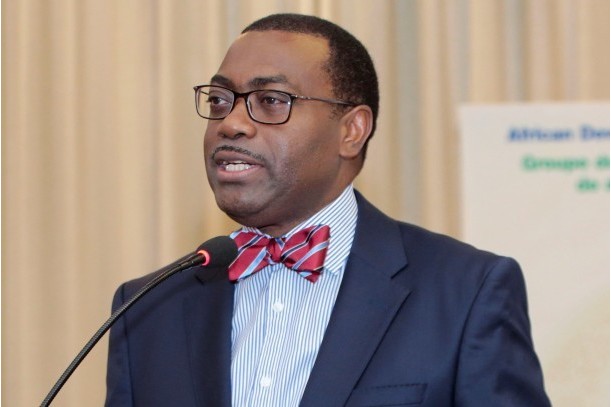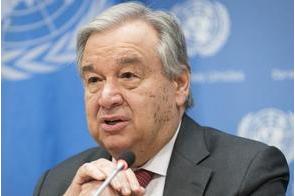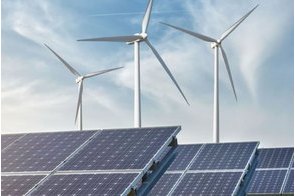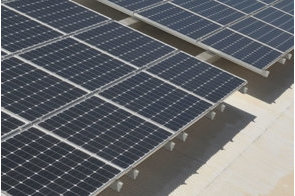COVID-19 has widened energy accessibility gap, says new GCEEP report

Summary
Many Nigerians are among over 100 million people worldwide to see their electricity access disconnected because they couldn't pay.
The Global Commission to End Energy Poverty (GCEEP) has called for urgent action on increasing access to electricity for the millions of people who are unconnected and underserved as part of an inclusive COVID-19 economic recovery. In a report released on Thursday, the commission said more than 100 million people could see their electricity access disconnected in 2020 because they couldn't pay their bills during the pandemic.
Prior to the pandemic, GCEEP said more than 800 million people worldwide lacked access to electricity, and hundreds of millions more struggled with erratic and limited service. According to the World Bank's Sustainable Energy for All (SE4ALL) database, only 54.4 per cent (103 million) of Nigeria’s population had access to electricity in 2017. Nigeria has the world’s second largest deficit in access to electricity, after India.
The commission's 2020 Report: Electricity Access says COVID-19 has widened the energy accessibility gap, with the toll falling disproportionately on the poor and most vulnerable.
"COVID-19 has underscored the human consequences of energy poverty, showing the impact that a lack of electricity has on health, food, and jobs,” said Rajiv J. Shah, GCEEP’s Co-Chair and President of The Rockefeller Foundation. “It has also put many more vulnerable communities at risk of losing access to reliable power and falling back into extreme poverty.”
Shah further stated that increasing energy access must be prioritised as part of the economic stimulus to tackle the fallout of the pandemic. The commission is also working to catalyse investments to support a green and inclusive recovery from the crisis.
In this regard, GCEEP has called for the adoption of an Integrated Distribution Framework (IDF) – an approach that blends grid-based and distributed renewable technologies in a coordinated manner to achieve universal, productive-use electrification more quickly and more cost-effectively.
"Addressing the urgent challenges of climate change can go hand-in-hand with helping communities attain the universal energy access that provides a path out of poverty,” said Ernest Moniz, GCEEP’s Co-Chair and Former US Secretary of Energy. “Affordable electricity access is particularly important.”
Launched in 2019, GCEEP's mission is to forge a path toward universal electricity access. The commission comprises utilities, off-grid companies, multilateral development banks, academics, and leaders from across the electricity and development sectors. It is co-chaired by Shah, Moniz, and Akinwumi Adesina, Africa Development Bank (AfDB) President.
Speaking on the report's IDF approach, Adesina said: "Aligned with medium and long-term climate and sustainability goals, electrification will yield substantial socio-economic and environmental benefits, particularly in the developing economies of Sub-Sahara Africa. Energy must therefore be prioritized in the recovery strategies currently being developed by governments, international institutions and businesses."
Arguing on the need to accelerate efforts toward a more sustainable and equitable energy, the report calls for substantial private sector participation due to the sizable investments needed to achieve full electrification. This is in line with Sustainable Development Goal 7, which seeks universal access to affordable, reliable, sustainable and modern energy by 2030. The commission seeks to structure new public-private partnerships that crowd investment into electrification, ending energy poverty and unlocking more inclusive economic growth.
The report was released just as the Nigerian government’s service-based reflective tariff (SRT) structure came into force last month. Under the structure, the government has partially removed electricity subsidy, leading to an increase in electricity tariffs for many citizens in a country where poverty has been on the increase. Many Nigerians would be among the more than 100 million people the GCEEP said could see their electricity access disconnected because they couldn't pay their bills.
The removal of the subsidy is not unconnected with the government's cost-cutting measures amid reduced revenue due to low oil prices. Earlier in the year, the government removed petrol subsidies, among other fiscal measures, as part of the requirements for receiving technical assistance from the International Monetary Fund (IMF) under the terms of the $3.4 billion emergency financial assistance the government received to fight COVID-19.
GCEEP said its research team – led by the MIT Energy Initiative (MITEI)'s Deputy Director Robert Stoner and MIT visiting professor Ignacio Perez-Arriaga – is actively engaged in efforts to apply the IDF approach in several first-action countries, including Nigeria, Rwanda, Uganda and Colombia.
Related
-
Guterres calls for urgent, inclusive energy transition in Africa
The central objective of the United Nations this year is to build a global coalition for carbon neutrality by the middle of ...
-
Renewable energy increases competitiveness despite cost inflation
IRENA’s report concludes that expected high fossil fuel prices will cement the structural shift that has seen ...
-
Solar and wind electricity prices to fall 59 percent by 2025 - IRENA
Reduction in the costs of solar and wind energy supports the business case for switching from fossil fuels to renewables.










